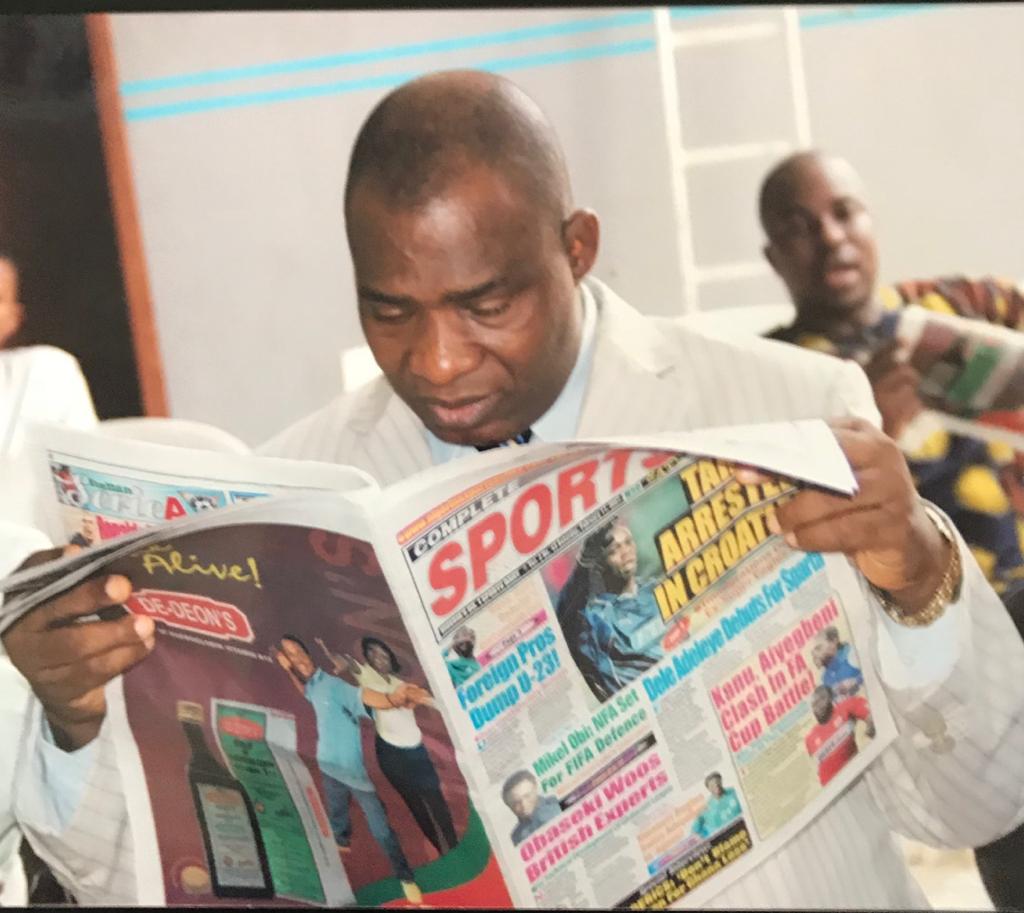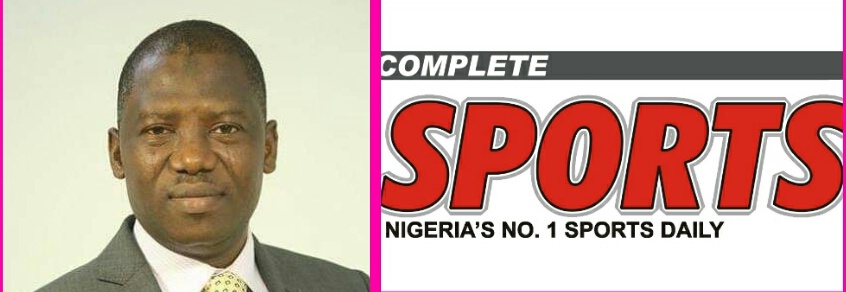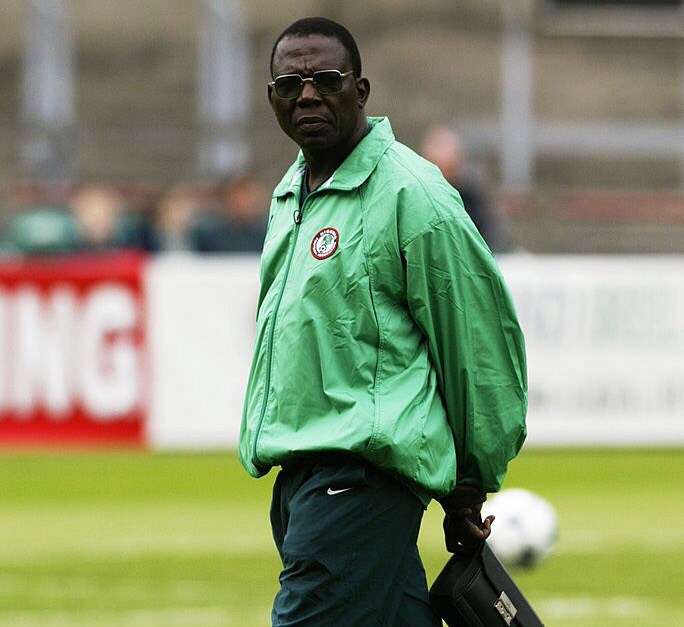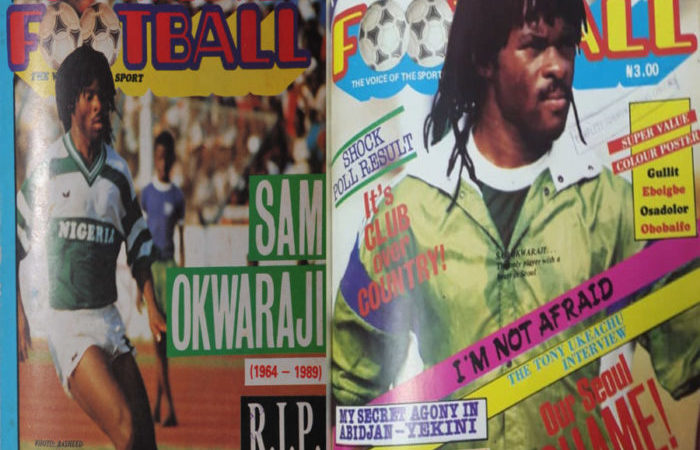Title: HARD ROAD TO VICTORY
By Complete Football
 The giant electronic scoreboard at 27-year-old El-Menzah Stadium in Tunis proclaimed it, boldly and gloriously – CHAMPION, NIGERIA!
The giant electronic scoreboard at 27-year-old El-Menzah Stadium in Tunis proclaimed it, boldly and gloriously – CHAMPION, NIGERIA!
Down below on the victory dais, a bunch of young Nigerians, totally oblivious of the near wintry conditions in Tunisia at that time of the day, danced and sang joyously, even if most of them were out of step and out of tune.
Nigeria had been crowned African soccer kings for the very first time outside Lagos. It was a culmination of many years of toil, near misses and frustration.
And what better place to be so honoured than inside that magnificent edifice, the Waterloo of Nigeria’s World Cup ouster in 1985. It was also the Tunisians who 17 years ago denied the Eagles a passage to the 1978 World Cup finals in Argentina.
It was only a month ago that this same team had been widely ridiculed and dismissed. Now they had weathered through this trying period of self doubt to emerge as the No.1 team in the whole of Africa.
Triumph for the Eagles at Tunisia ’94 was not achieved on a platter of gold. This was truly a hard-won championship. It was a hard road to the top.
The pressure was on the Eagles to fly high above the other 11 teams at the Nations Cup by virtue of the fact that they were the only USA ’94 finalists present in Tunisia. For the other teams, who for one reason or the other could not qualify for the World Cup finals, this was their chance to beat Nigeria and so prove they are also worthy of playing in the World Cup finals.
Selection – who plays, who doesn’t – even before the team had set foot on Tunisia was always going to generate controversies. Of the 23-man squad (goalkeeper Ike Shorunmu was the 23rd man) there were only three players from the local league. Clemens Westerhof was therefore faced with the tough task of picking the team, match after match.
“This is what we have been saying all along. Many people did not understand Westerhof when he hesitated in bringing in all the professionals together in one sweep,” says one of the Eagles coaches, Bitrus Bewarang.
With such an embarrassment of talent, picking a team will be a tricky business. Westerhof’s job was therefore not made any easier as he would also wish to keep all his stars happy especially those who had left their European teams to be in Tunis. These players were staying away from the clubs that pay them.
Several of these players, therefore, did not find it amusing when they were largely left out of the scheme of things in Tunisia.
Willy Agbonavbare was first choice ‘keeper before Tunisia ’94 but within two weeks he had lost his shirt to Peter Rufai. And even the reserve keeper’s spot was taken up by another player, Alloy Agu. Agbonavbare, automatic choice at his Spanish first division side, Rayo Vallecano, had to be disuaded from packing his bags and heading back to Spain in protest.
With Efan Ekoku, injury to a large extent dictated his appearances for the team. Great things were expected of the Norwich City striker, who by the Nations Cup finals had cracked home 14 goals in the English Carling Premiership League. The hardness of the pitch in Portugal during the Eagles training stint there had brought back an old ankle complaint and so while his other mates were sweating out for the big action, Ekoku was spending every available time at the physiotherapist’s treating his injury.
And when he eventually made his international debut in the quarter-final game against the power-playing Leopards from Zaire, he was still very conscious of his injury problems. But most importantly, in that particular match he was played out of position. At Norwich, he plays as one of the twin strikers but he was now expected to play right behind Yekini and Amokachi in a role that will demand of him to spray passes to the two strikers and be more involved in the midfield. “That’s not my normal position,” Ekoku himself says after the game. “I don’t want it to be seen as if I’m making any excuses for my performance but back at my club I play upfront as one of two front-men.”
For the “strange” role he played against the Leopards, he had agreed to undergo a special training but on hindsight now, it seems it was asking too much of him to make an overnight success of it.
The selectors were also initially at a loss on who to play wide on the flanks – Finidi George or Emmanuel Amuneke? It was not an easy job picking Finidi ahead of Amuneke in the early rounds. The Ajax ace got the nod because he had proved in training that he has more defensive abilities than his rival from Zamalek of Egypt. He could therefore be expected to drop back into the midfield and fight for the ball anytime the Eagles lost possession.
Monaco’s Victor Ikpeba was unhappy he was ignored by Westerhof. Ikpeba has had a fine first season in France but it appears that Westerhof still does not have a place for him in his plans. The youth international made a fuss or two and, maybe to patronise him, Westerhof decided to give him a run as a substitute in the opening game against Gabon. And that was as far as his championship went.
Several of these players felt they ought to be given a better chance to stake their claim in the first team but as the Super Eagles kept on winning, it became more and more difficult for the selectors to change a winning team. As a result of these selection problems, there was bitterness, disaffection in the team, not necessarily division or factions.
Clemens Westerhof, the man and the coach, was an issue on his own in Tunisia. Whether you like it or not, the Dutchman has become a factor in Nigerian football. For views on the Super Eagles, most journalists in Tunisia will rush to get the comments of Westerhof, and the man really enjoys basking in the limelight. He is a friend to those he considers are his friends while he is openly hostile to those he considers as his enemies.
ORGANISATION
Even before the competition kicked off, the local organisers of Tunisia ’94 had been given a pass mark. The Tunisians really proved they could manage a championship of this magnitude right from the brief but original and colourful opening ceremony. Everything moved at clockwork precision.
They also proved they can cope with emergencies. A total of 300 journalists were expected to cover the championship but in the end a record 700 pressmen were at Tunisia ’94. All the same, they were able to provide this record number of pressmen with all the services necessary to carry out their duties without a great deal of hassles.
Future organisers of the Nations Cup should, however, conduct a more thorough screening of journalists they give accreditation papers to. There was a good number of cases where soccer managers and agents posing as freelance writers were wrongly accredited for Tunisia ’94.
The Africa Cup of Nations has a history of losing, not making, money for the local organisers. Tunisia ’94 had the chance of turning the tables because the host country has a track record of hosting events of this nature and because of the country’s nearness to Europe, among other considerations. Coca-Cola and Nescafe were the most visible sponsors and one would have thought more sponsors especially those within the country could have been attracted.
FACILITIES
Stadium facilities for Tunisia ’94 were in excellent shape. The country had spent over 40 million dinars (about $40 million) to renovate the three stadiums that were used for the championship.
The pitches, dressing-rooms and various stands for spectators, officials and the press were up to standard.
Telecommunication facilities – telephone, fax, telex – were also available and, most importantly, functioning. Reporters from Nigeria experienced difficulties dispatching their reports via fax and had to resort to the more tedious and out-dated telex to get through to their media organizations.

![Flashback: How Kanu and Finidi won Champions League with Ajax Amsterdam 25 years ago [Video] 3 Flashback: How Kanu and Finidi won Champions League with Ajax Amsterdam 25 years ago [Video] 3](https://naijasuperfans.com/wp-content/uploads/2021/03/Screenshot_20210304-144127-01.jpeg)


![Podcast EP 17: Listen to late Stephen Keshi talk about his AFCON story [1] 6 Podcast EP 17: Listen to late Stephen Keshi talk about his AFCON story [1] 6](https://naijasuperfans.com/wp-content/uploads/2020/05/stephen-keshi-1.jpg)


